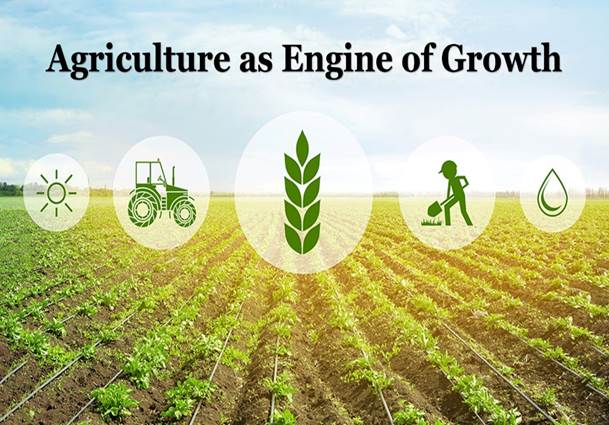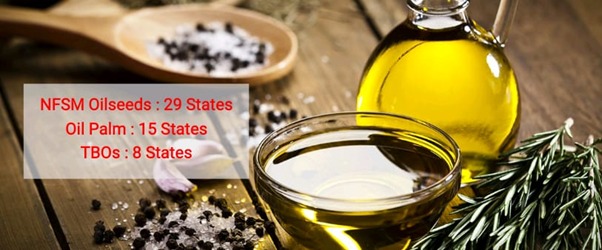Others
Transforming Agriculture: Government's Holistic Strategy for Productivity and Resilience
Union Budget 2024-25 Highlights Prime Minister's Vision for a Developed IndiaTop of FormBottom of Form
Posted On:
24 JUL 2024 5:15PM
The Indian government has outlined a comprehensive strategy to enhance agricultural productivity and resilience through initiatives such as research infrastructure review, development of climate-resilient crop varieties, promotion of natural farming among one crore farmers, and establishment of bio-input resource centres.
Additionally, efforts include achieving self-sufficiency in pulses and oilseeds, developing vegetable production clusters, implementing Digital Public Infrastructure in agriculture, and supporting shrimp farming through NABARD. These initiatives aim to modernize agriculture and ensure sustainable growth across the sector. let's summarize each strategy briefly and discuss how government schemes have progressed in these areas.

1. NATURAL FARMING
Hon’ble Finance Minister Nirmala Sitharaman prioritized agriculture in the Union Budget, proposing to initiate NF with 1 crore farmers supported by certification and branding. The implementation will be done through scientific institutions with willing Gram Panchayats. Further, 10,000 need-based BRCs will be established, creating a national-level distributed micro-fertilizer and pesticide manufacturing network.
WHAT IS NATURAL FARMING
Natural farming is a chemical free farming, involving livestock integrated natural farming methods, and diversified crop systems rooted in the Indian traditional knowledge. It is aimed towards using non synthetic chemical inputs to improve soil health with greater climate resilience and reduce input cost to the farmer.
NATURAL FARMING IN INDIA
The Government of India initiated NF in 2019-20 through “Bhartiya Prakritik Krishi Paddhati – (BPKP)” under Paramparagat Krishi Vikas Yojna (PKVY) in limited areas. BPKP is planned to be upscaled in mission mode through National Mission on Natural Farming (NMNF).
NMNF is being proposed with the objective to promote nature based sustainable systems of farming, having on farm inputs thus reducing dependency with externally purchased inputs, improved soil health, and input cost reduction; strengthen on-farm agroecological research and knowledge based extension capacities of extension & research institutions; bring together and learn from on-field experience of practicing NF farmers and scientific expertise for improved knowledge and orientation on the benefits, potential and methodology of NF; establish scientifically supported easy farmer friendly certification procedures for naturally grown chemical free produce; create and promote a single national brand for naturally grown chemical free produce.
The scheme has a total outlay of ₹2481.00 crore for the period of four years (2022-23 to 2025-26).
2. Government Initiatives for Self-Sufficiency in Pulses and Oilseeds
Achieving self-sufficiency in pulses and oilseeds has been a priority for the Indian government, supported by various initiatives and schemes:
National Food Security Mission (NFSM)
National Food Security Mission- Oilseeds (NFSM-OS) is being implemented by the Government of India from 2018-19 to augment the availability of edible oils and reduce the import burden by increasing the production and productivity of oilseeds (Groundnut, Soybean, Rapeseed & Mustard, Sunflower, Safflower, Sesame, Niger, Linseed and Castor) and area expansion of Oil Palm & Tree Borne Oilseeds (Olive, Mahua, Kokum, Wild Apricot, Neem, Jojoba, Karanja, Simaroba, Tung, Cheura and Jatropha) in the country.

Due to efforts of the Government, the total area dedicated to oilseed cultivation has increased from 25.60 million hectares in 2014-15 to 30.08 million hectares in 2023-24, marking a 17.5% growth. Consequently, the domestic production of edible oils in the last 9 years has increased by more than 40% from 86.30 lakh tonnes in 2015-16 to 121.33 lakh tonnes in 2023-24. It has reduced our reliance a bit on imports from 63.2% to 57.3% despite a huge surge in domestic demand. Under National Oil Palm Mission too with support of our farmers the plantation area has also increased to 4.7 lakh hectares.
Minimum Support Price (MSP)
MSP assures a price 50% over the actual cost of production to our farmers, thereby providing an attractive return on investment. MSP is the highest today with increases as high as 117% in Masoor, 90% in Moong, 75% more in chana dal, 60% more in Toor and Urad over the amount provided a decade back. NAFED and NCCF are encouraging farmers to diversify into pulses and lentils and are willing to provide assured prices for 5-year contracts for government procurement, a massive step for the Government of India.
3. High-Yielding and Climate-Resilient Varieties: The Need of the Hour in India
The Indian government has announced a significant initiative to introduce 109 new high-yielding and climate-resilient varieties across 32 field and horticulture crops, aimed at revolutionizing agricultural practices nationwide. These new varieties are meticulously developed to withstand diverse climatic conditions while enhancing crop productivity and ensuring sustainability.
During 2014-15 to 2023-24, a total of 2593 high-yielding varieties were released which include 2177 climate resilient (83% of total) with biotic and abiotic stress resistance, and 150 bio-fortified crop varieties. More than 1.0 lakh quintal breeder seed on more than 2200 varieties of 56 crops is being produced. Deployment of climate resilient technologies led to enhanced production even during the abnormal years
4. Transforming Agriculture: DPI Initiative to Revolutionize Digital Crop Surveys
The government's initiative to implement Digital Public Infrastructure (DPI) in agriculture aims to revolutionize the sector by leveraging digital technology to benefit farmers and enhance agricultural efficiency. Buoyed by the success of pilot projects, this nationwide initiative will be carried out in collaboration with state governments over a span of three years.
As part of the initial phase, a digital crop survey will be conducted during the Kharif season in 400 districts. This survey will utilize the DPI to collect detailed data about the Crop Sown on every farmland plots in all the three seasons and land use to provide accurate, real-time crop area information for every agricultural plot, aiming to replace traditional survey methods like Girdawari. By digitizing these aspects, the government can enhance precision in planning and implementing agricultural strategies, including distribution of subsidies, insurance coverage, and disaster management.
5. Technology Initiative: Empowering Farmers with Accessible Kisan Credit Cards
The Department of Agriculture & Farmers’ Welfare (DA&FW) is dedicated to supporting farmers through its flagship Modified Interest Subvention Scheme (MISS), which aims to provide affordable credit for short-term needs through Kisan Credit Card (KCC). To enhance the scheme's efficiency, transparency, and timely disbursement of benefits, the DA&FW has digitalized the claims process via Kisan Rin Portal (KRP) launched last year.
Currently, KRP has integrated with 171,221 bank branches, 33 Scheduled Commercial Banks (SCBs), 356 District Central Cooperative Banks (DCCBs), 20 State Cooperative Banks (STCBs), 45 Regional Rural Banks (RRBs), RBI and NABARD. The portal is currently processing Interest Subvention & PRI claims for Kisan Credit Card (KCC) accounts with an enhanced allocation of Rs. 22600 crores for the year 2024-25.
The government is further enhancing the capabilities of the Kisan Rin Portal (KRP) to ensure widespread access to institutional credit by leveraging technologies for seamless and hassle-free access to agricultural credit through Kisan Credit Cards (KCC). Due to government’s efforts the number of operational KCC accounts has increased from 6.46 crore in 2013 to 7.75 crore in 2024. Correspondingly, the outstanding credit in these KCC accounts has risen from Rs. 3.63 lakh crore in 2013 to Rs. 9.81 lakh crore in 2024.
6.Per Drop More Crop (PDMC)
Per Drop More Crop (PDMC) is implementing in the Country from 2015-16. PDMC focuses on enhancing water use efficiency at farm level through Micro Irrigation, namely, Drip and Sprinkler Irrigation systems. The Micro Irrigation helps in water saving as well as reduced fertilizer usage, labour expenses, other input costs and enhancement of overall income of farmers.
Financial Assistance is provided @ 55% for small & marginal farmers and @45% for other farmers for installation of Micro Irrigation under the scheme. To facilitate the States in mobilising resources for expanding coverage of micro irrigation, Government of India has created Micro Irrigation Fund (MIF) with National Bank for Agriculture and Rural Development (NABARD).
From the year 2015-16 to 2023-24, total area of 90 lakh ha has been covered under Micro Irrigation in the country through PDMC which is significantly (92%) higher as compared to coverage in nine years prior to PDMC.Top of Form
Conclusion
The government's holistic agricultural strategy aims to boost productivity and resilience through research and development, introducing new high-yielding crop varieties. It prioritizes natural farming initiatives for one crore farmers, builds bio-input centers, and works towards achieving self-sufficiency in pulses and oilseeds. Initiatives such as Digital Public Infrastructure and support for shrimp breeding centers underscore efforts to modernize and enhance agricultural practices nationwide.
Transforming Agriculture: Government's Holistic Strategy for Productivity and Resilience
***
Santosh Kumar/Sarla Meena/Ritu Kataria/Sheetal Angral/Aparajita Priyadarshini
(Backgrounder ID: 151953)
आगंतुक पटल : 3041
Provide suggestions / comments